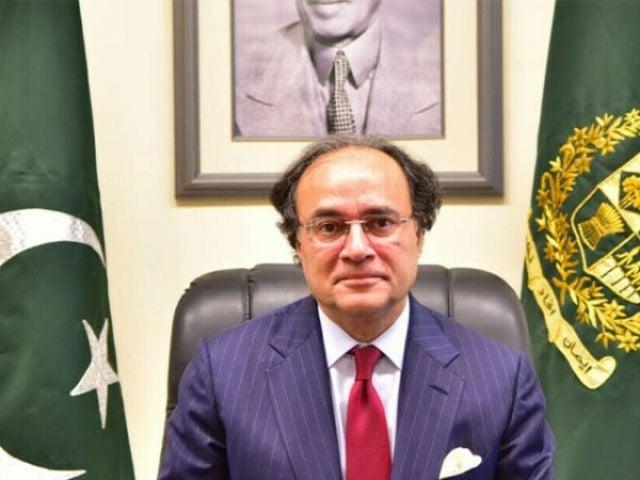The Minister of Finance, Muhammad Aurengzeb, said Monday that the next federal Pakistan budget for fiscal year 2025-26 will introduce bold measures and provide a strategic direction for the country’s economy.
Addressing an event organized by Karandaaz Pakistan and the Association of Banks of Pakistan (PBA) in Islamabad.
According to a report by the Buisesness recorder, Aurengzeb said that the budget will not only focus on income and expenses, but will also describe the broader economic path ahead.
“We are going to bring some bold measures during the budget for fiscal year2025-26,” he said, emphasizing the importance of making the budget document “more strategic” instead of simply “making mathematics work.”
The federal budget is scheduled to be presented on June 10, 2025, while the Pakistan 2024-25 economic survey will be published a day before, on June 9.
Aurengzeb emphasized the need for export -led growth and expressed its satisfaction that Pakistan’s economy has exceeded the $ 400 billion brand, indicating positive progress.
He also declared that the international community recognizes the economic change of Pakistan and the macroeconomic stability that the country has achieved.
However, Aurengzeb warned against the repetition of past errors, saying that previous macroeconomic stability efforts had been hesitated due to “consumption -based growth” that caused problems of payment balance and currency.
“To separate from the boom and bust cycle, Pakistan needs to maintain the course of structural reforms,” he said.
The minister stressed the government’s commitment to the current reforms in taxes, energy and state companies (SOE), together with the correct size of the federal government to guarantee sustainable growth.
He admitted that the progress in the SOE reforms was delayed last year, but promised that the Government would accelerate efforts, including the relaunch of the privatization transaction of the international airlines of Pakistan (PIA), on which optimism expressed.
Aurengzeb highlighted the plans to simplify the process of submitting the tax declaration for salaried taxpayers, with the aim of reducing the number of required measures from 140-150 to only nine, which will be implemented at the end of September.
Regarding debt management, the Minister of Finance said that government debt service costs have decreased in RS1 billion during the current fiscal year.
He also announced plans to restructure and modernize the debt management office in next year.
Aurengzeb said that Pakistan’s long -term economic objectives include becoming an economy of $ 3 billion by 2047, but said this requires addressing critical challenges such as population growth and climate change.
He referred to the 10 -year country association framework signed with the World Bank, highlighting that four of six key approach take care of climatic and population problems.
The minister also commented on the recent regional tensions, stating: “These are very tense moments. The entire nation has rightly celebrated the way our armed forces and political leadership have faced aggression.”
He revealed that efforts had been made to derail Pakistan’s commitment to the International Monetary Fund (IMF), particularly attempts to block meetings related to financial support.
Despite these challenges, Aurengzeb said that Pakistan’s case with the IMF was finally “discussed and decided by merit.”
He urged the same unit shown in recent times of aggression to apply to the economic front.
The IMF ended its recent 10 -day conversations about the 2026 fiscal year budget of Pakistan without a formal agreement, announcing that the discussions will continue in the next few days.
Nathan Porter, the IMF chief of the outgoing IMF to Pakistan, said the conversations focused on increasing income through the best fiscal compliance and expanding the tax base, as well as prioritizing spending.
Initially planned to be held in Pakistan from May 13 to 23, conversations began remotely from Turkiye due to India-Pakistan tensions before moving to face-to-face meetings in Islamabad on May 19.
Previously, the Government postponed the presentation of the federal budget for fiscal year 2025–26 in more than a week, which moved it from June 2 to 10, according to sources from the Ministry of Finance.
The delay occurs when Prime Minister Shehbaz Sharif is currently on a diplomatic tour of several nations to express gratitude to friendly countries for their support during recent tensions with India.
Meanwhile, the IMF ended its recent 10 -day conversations about the 2026 fiscal year budget of Pakistan without a formal agreement, announcing that the discussions will continue in the coming days.
Nathan Porter, the IMF chief of the outgoing IMF to Pakistan, said the conversations focused on increasing income through the best fiscal compliance and expanding the tax base, as well as prioritizing spending.
Initially planned to be held in Pakistan from May 13 to 23, conversations began remotely from Turkiye due to India-Pakistan tensions before moving to face-to-face meetings in Islamabad on May 19.




